Post
A catch
Save a catch to start your fishing logbook. You will be able to to share it with the community if yo want!
A fishing trip
Post an ad to go fishing with other fishermen
Save a catch to start your fishing logbook. You will be able to to share it with the community if yo want!
Post an ad to go fishing with other fishermen
Share a thought, a question with the community
My favorite cities
×Join our 2 fishermen in Corning in Clay. The fishing forecast is currently 3.4. The most caught fishes here are the chum salmon, the northern pike, the spotted seatrout and the yellow perch . Come try the most famous fishing techniques like the boat fishing for eel, bass trolling, trolling for mackerel or fishing for sea bass while surfcasting.
Our fishing forecast of Corning indicates the best time to go fishing in this city.
The Chum Salmon
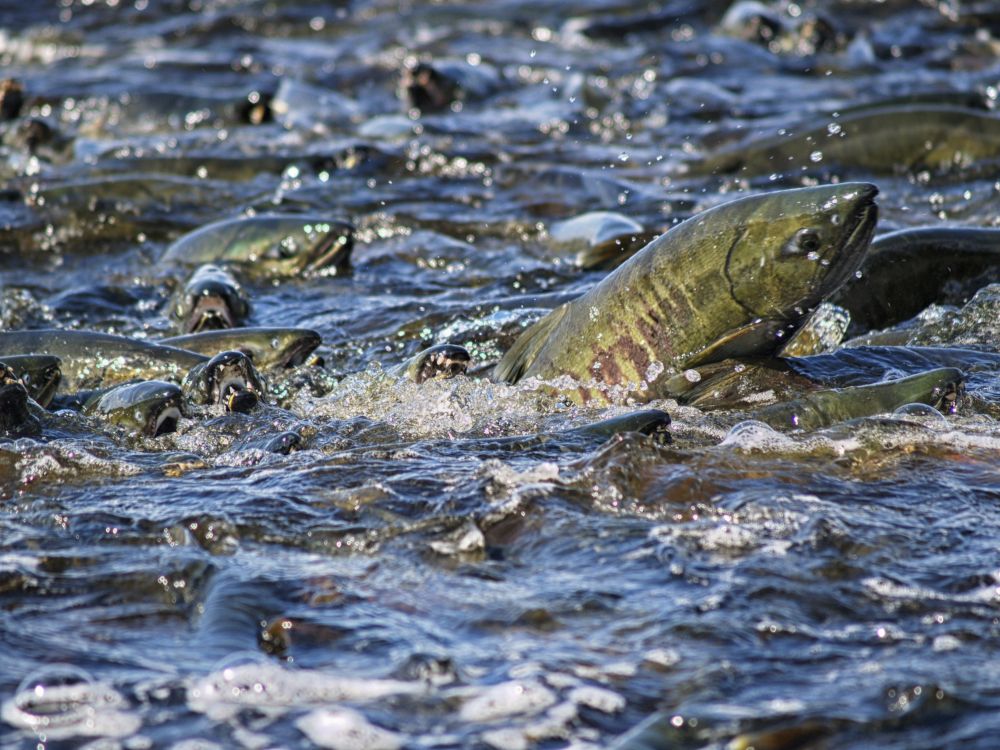
The Chum Salmon belongs to the Salmonidae family. It can reach 100 cm for a maximum weight of 15 kg. It has a lifespan of 3 to 5 years. The breeding period depends on the location. It can be fished all year round. The body of chum salmon is deeper than most salmonidae species. Like other species in the Pacific, the anal fin has 12 to 20 rays, compared to a maximum of 12 in European species. The chum salmon has a silvery blue-green coloring with some indistinct spots in a darker shade and a rather paler belly. When they move in fresh water, their color changes to dark olive green and the belly color intensifies. When adults are about to spawn, they have purple streaks near the caudal peduncle, darker towards the tail. Breeding males generally develop an extended snout or kype, their lower fins turn white and their teeth are larger.
The Chum Salmon is a famous fish you can catch in Corning.The Northern Pike
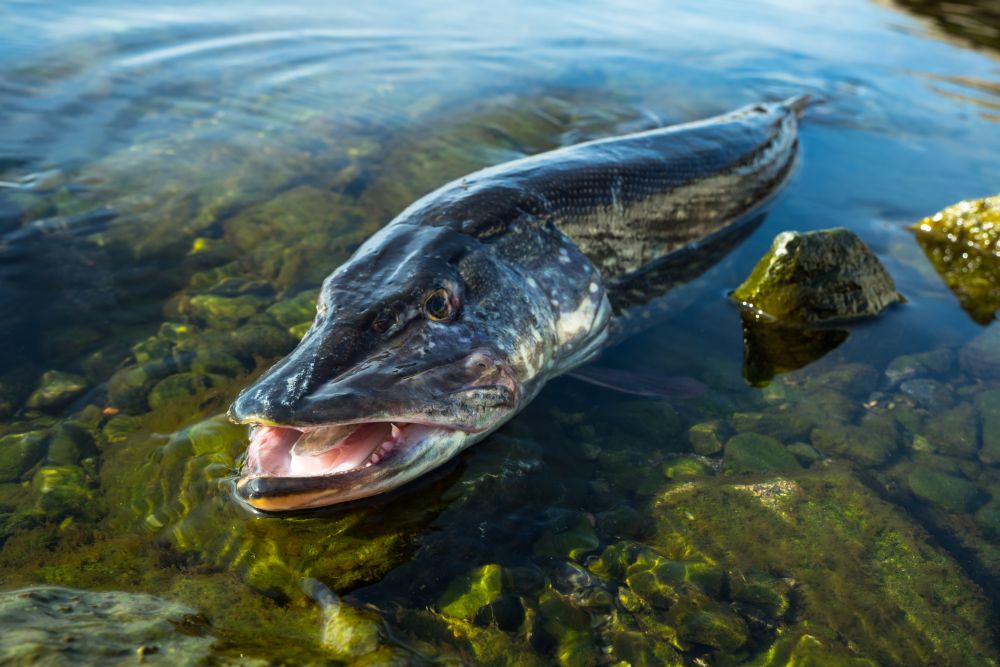
The Northern Pike belongs to the Esocidae family. The Northern pike have an average length of 46 to 51 cm. The maximum weight recorded was 28.4 kg. The average weight is about 1.8 kg. It has a lifespan of about 12 years. It reproduces in the springs. It can be fished in early spring. They can be identified by their one dorsal fin and by light spots along their dark bodies. They can also be identified by the scales that cover their entire cheek and upper half of their gills. Their close relative, the muskellunge (Esox masquinongy), has only scales that cover only the upper half of the cheek and gill covers. The sides of E. lucius range from dark green to olive green to brown, with 7 to 9 rows of yellowish bean-shaped spots. The underside is white to cream.
The Northern Pike is a famous fish you can catch in Corning.The Spotted Seatrout
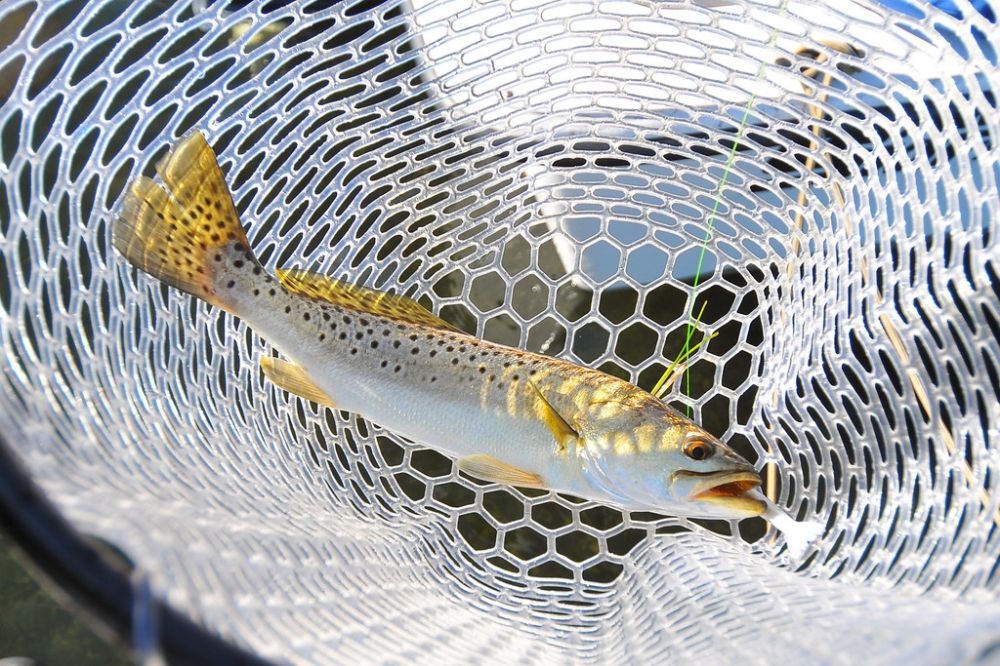
The Spotted Seatrout belongs to the Scianidae family. Spotted sea trout reach a maximum length of 100 cm and a maximum weight of 7.9 kg. The lifespan of this species is 8 to 10 years. It breeds from March to September. It can be fished all year round. The spotted seatrout has an elongated, somewhat compressed body with a slightly elevated back. The head is long with a pointed snout and a large oblique mouth. The dorsal fin is continuous or slightly separated. The fins are flake-free, with the exception of 1 to 10 rows of small scales at the base of the dorsal and anal fins. The lateral line extends over the tail, characteristic of all Sciaenidae. The body of the spotted seatrout is silvery with irregular black spots on the upper half, from the dorsal fin to the caudal fin. The dorsal side is dark grey with bluish reflections while the ventral side is silvery to white. The dorsal fin is dark, while the others are yellowish.
The Spotted Seatrout is a famous fish you can catch in Corning.The Yellow Perch
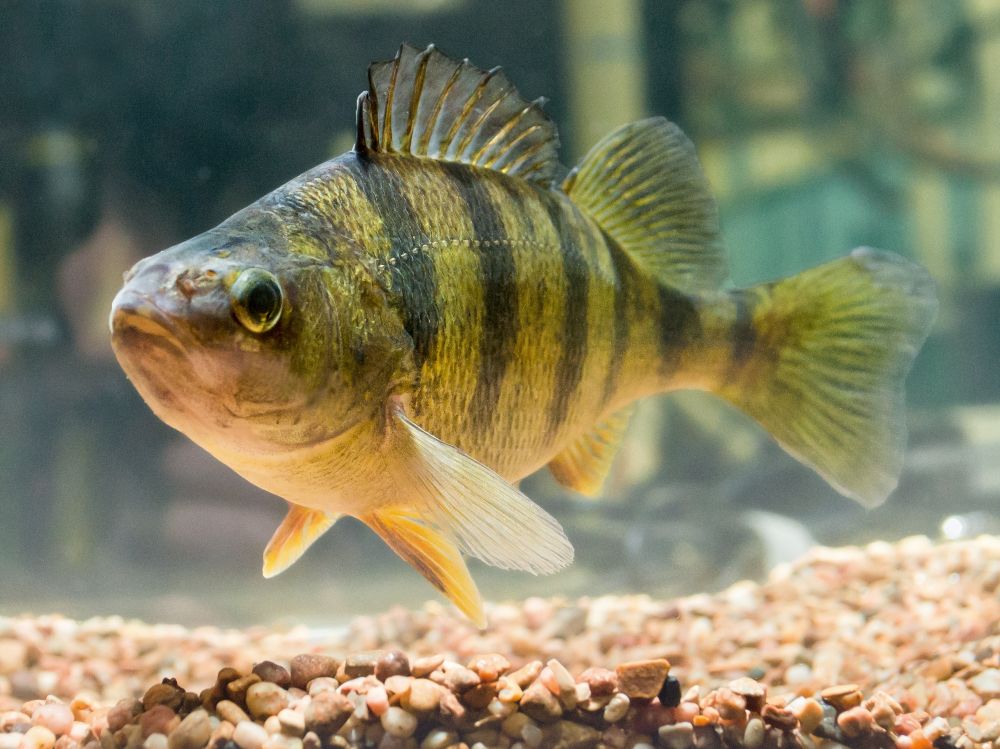
The Yellow Perch belongs to the Percidae family. The yellow perch measures on average 10 to 25 cm in length and weighs between 50 and 200 g (up to 36 cm for 500 g). The average lifespan is about 7 years. It breeds from April to May. It can be fished all year round. Its body is elongated and oval. Its head is moderately high and rounded at the tip. Its snout is obtuse and moderately long; it does not extend beyond the lower jaw. The mouth is terminal and slightly oblique. The jaws have small teeth. The operculum is finished with a strong thorn. There are 2 distinctly separated dorsal fins. The first dorsal spine is high and rounded, the spines are strong, the rays vary from 13 to 15. The second dorsal fin is almost as high, with 1 to 2 spines and 12 to 15 rays. The caudal is slightly forked. The color of the yellow perch varies according to its size and habitat. The back and dorsal surface of the head vary from bright green to golden brown to olive. The sides are pale yellow to yellow-green with about 7 vertical black bars of decreasing width. The ventral face of the head and body varies from grey to milk white. The dorsal and caudal fins range from yellow to green; the edge of the first dorsal fin is often black. In males in spawning livery the colors will be more intense: in particular, the pelvic and anal fins which are then bright orange.
The Yellow Perch is a famous fish you can catch in Corning.The Bloater fish
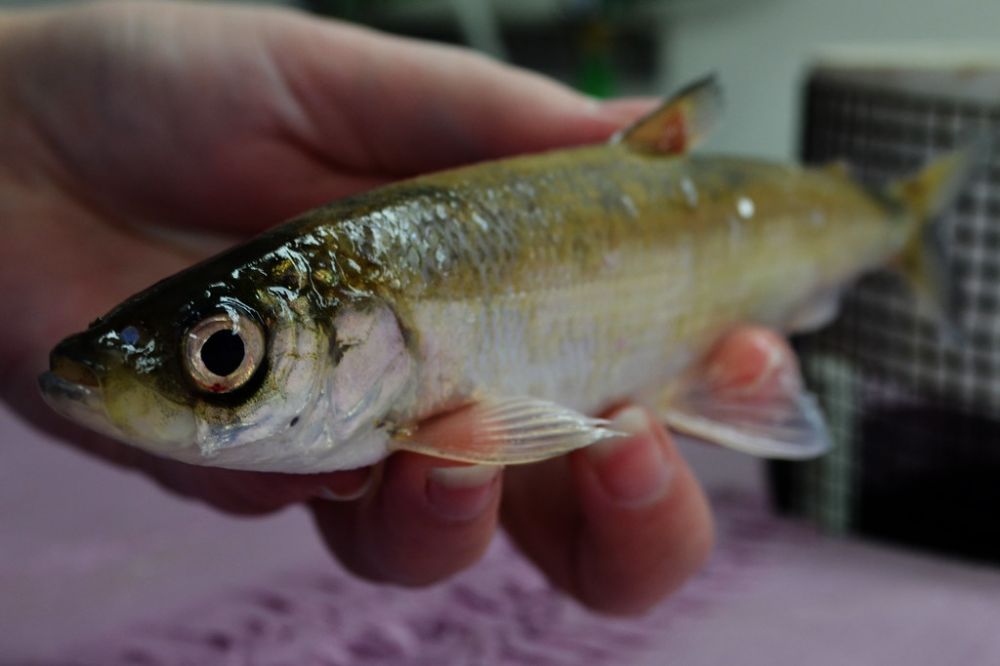
The Bloater fish belongs to the Salmonidae family. It has a maximum length of 37 cm for an average size of 25 cm. It has a maximum lifespan of 10 years. It spawns all year round with a peak in fall or winter. It can be fished all year round. The bloater is a small silvery white fish with a pink and purple iridescence. It has a greenish hue above and a whitish belly. It is very similar to kiyi, which distinguishes it by its lighter upper lip and smaller eye. Its body is deepest in its middle, its fins are small and pale and it has 40-47 gills.
The Bloater fish is a famous fish you can catch in Corning.Our fishing forecast of Corning indicates the best time to go fishing in this city.
Our fishing forecast of Corning indicates the best time to go fishing in this city.
Our fishing forecast of Corning indicates the best time to go fishing in this city.
